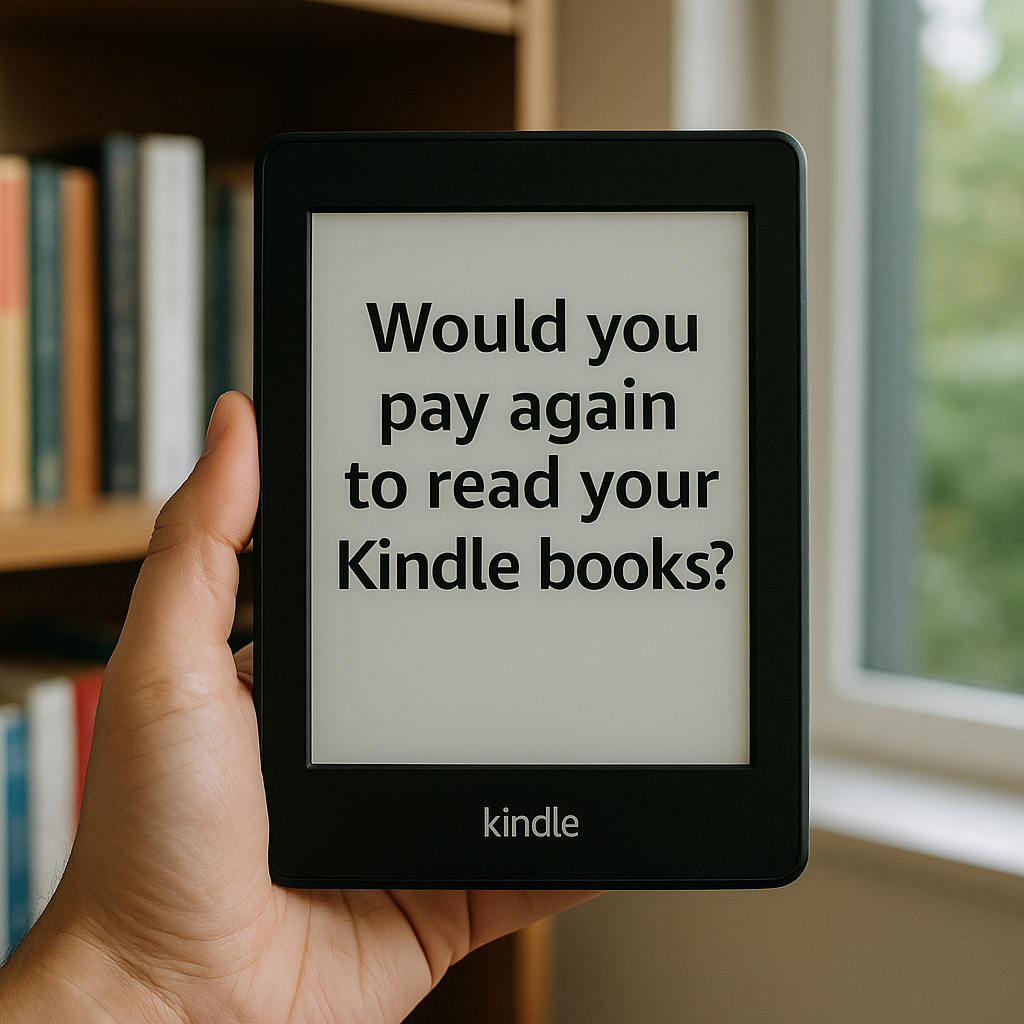Will You Pay to Access the Books You Thought You Owned?
According to this article, Amazon generated approximately $28 billion in global book sales in 2024, $6 billion of which came from ebooks. Books are the most popular category in the Amazon store. The company holds a 68% share of global ebook sales—or 83% if you include Kindle Unlimited subscriptions—and controls 70% of the global e-reader hardware market.
As a long-time Kindle user, I’ve been thinking about what ebook ownership really means.
Consider a hypothetical scenario: Amazon starts charging a fee to maintain access to ebooks you’ve already “purchased.” Would you pay to keep access to your digital library?
Now imagine a less radical, but more plausible scenario: to maintain access to your ebooks, you’d need an Amazon Prime subscription after one year. This would only apply to new purchases going forward. More acceptable? Would you pay?
Most users, myself included, would opt for convenience and pay the subscription fee.
Here’s another possible future: the mainstream way to access ebooks is via a monthly subscription that unlocks the entire Amazon catalog1. Pay a bit more, and you get access to audiobooks as well. Would you subscribe?
Not owning the books in your library might feel disturbing to some. But I’m certain my kids—and most people born in the 21st century—won’t care. As Kevin Kelly writes in The Inevitable: Understanding the 12 Technological Forces That Will Shape Our Future:
Access is so superior to ownership in many ways that it is driving the frontiers of the economy. (…) In the coming 30 years the tendency toward the dematerialized, the decentralized, the simultaneous, the platform enabled, and the cloud will continue unabated. (…) For most things in daily life, accessing will trump owning.
It has already happened to music, news, movies, TV shows… It’s inevitable that ebooks will follow. And if one company is positioned to push that shift at scale, it’s Amazon.
A full-catalog subscription model would offer Amazon recurring revenue, tighter customer lock-in, and richer behavioral data. For a platform company, that’s not just appealing—it’s strategic.
-
Like Kindle Unlimited, but a truly global version that includes the full Amazon catalog—not just a subset. ↩
